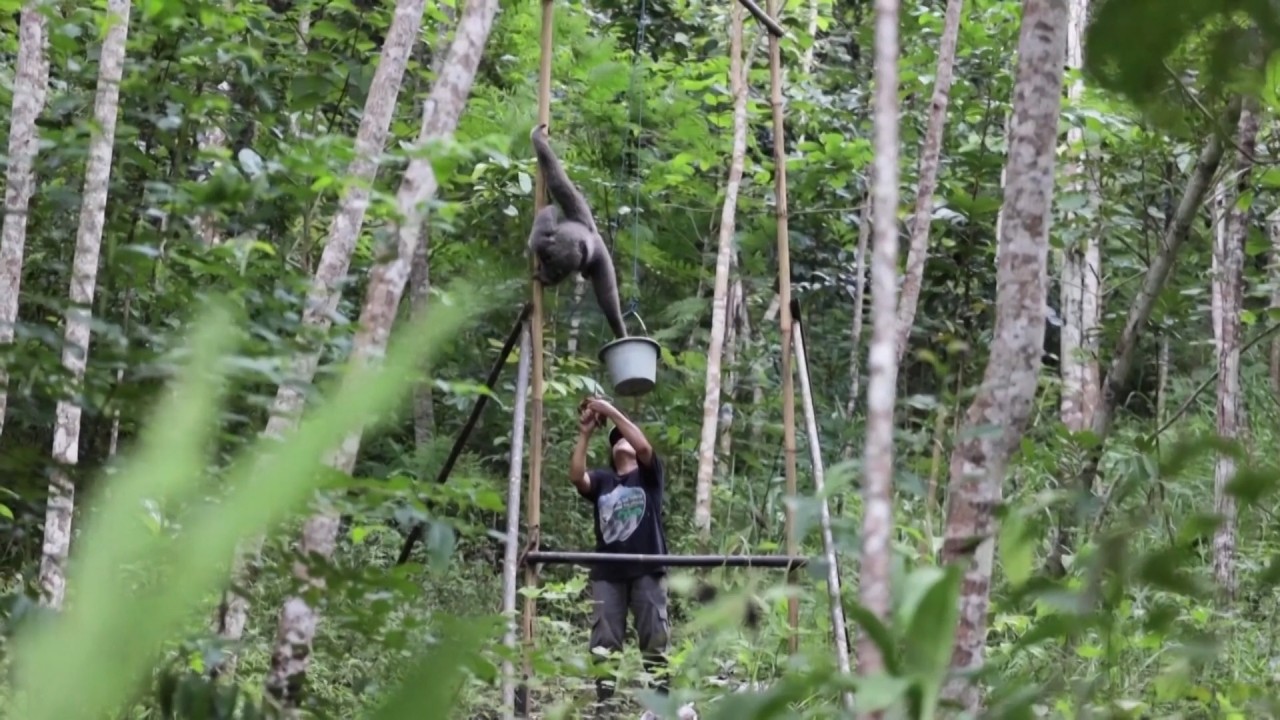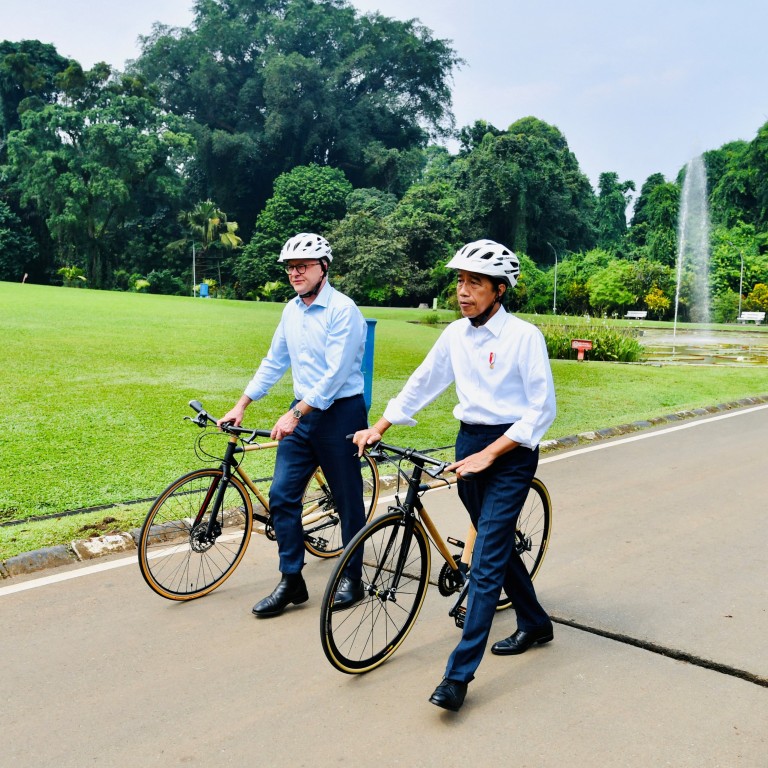
Australia’s Albanese, Indonesia’s Jokowi ride bamboo bikes, talk ‘green’ investment, trade and language support
- PM Albanese tells Indonesia’s President Joko Widodo their ‘ever deepening’ bilateral relationship was strengthened by joint strategic and economic interests
- Initiatives unveiled by Albanese, including green-tech support and Bahasa Indonesia lessons Down Under, were described as ‘nothing new’ by an analyst
Australia’s new Prime Minister Anthony Albanese met Indonesian President Joko “Jokowi” Widodo at a presidential palace in the city of Bogor on Monday, where he hailed the two nations’ crucial and significant ties.
“Australia’s relationship with Indonesia is one of our most important. We are linked not just by geography, we are linked by choice,” Albanese said in a televised address of both men.
“We’ve enjoyed a long history of cooperation and friendship, and our relationship is ever deepening and deepened by the strategic and economic interests that we share,” he said.
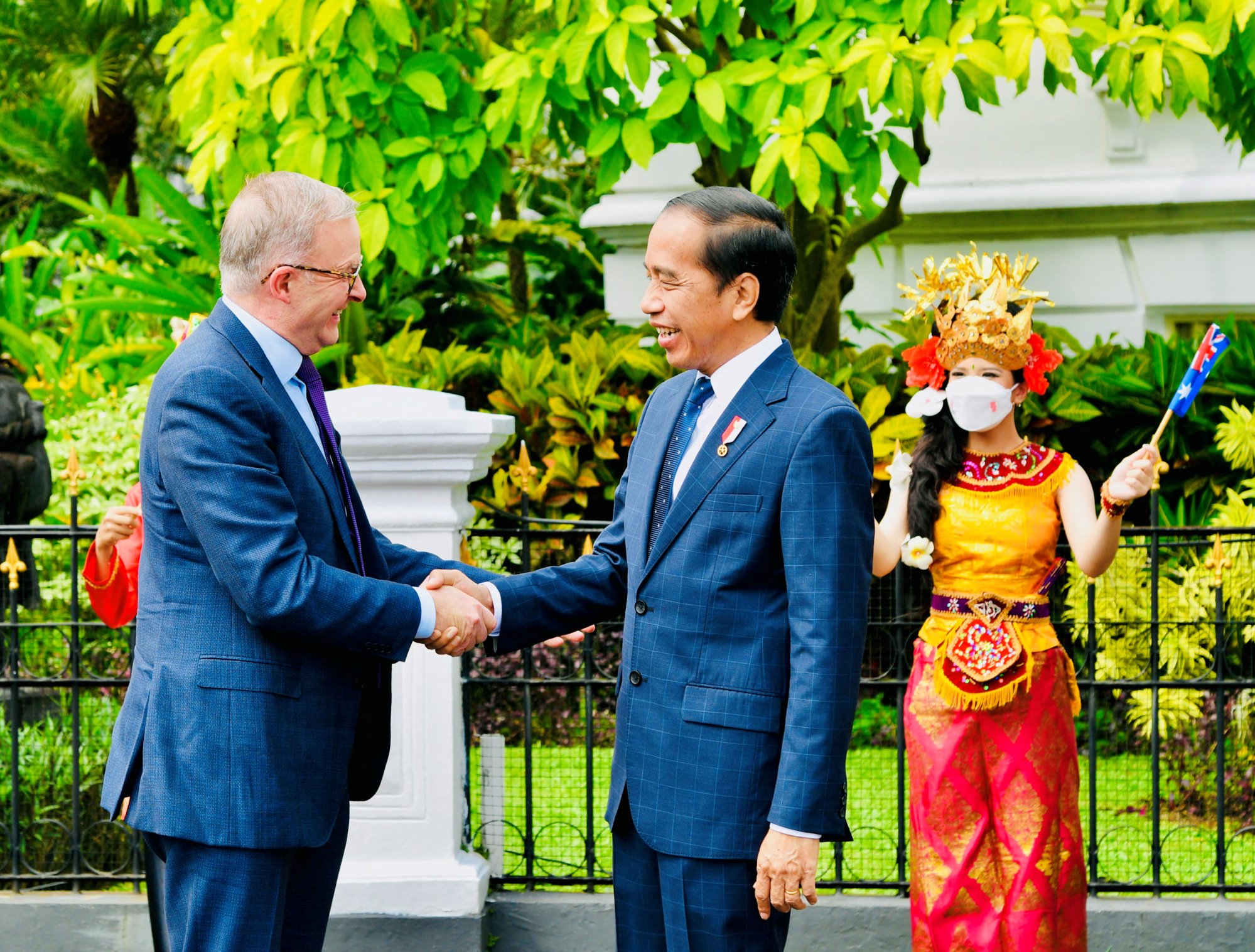
He also announced that he planned to work closely with Jokowi to realise the potential of the Indonesia- Australia Comprehensive Economic Partnership Agreement (IA-CEPA), signed in 2020.
“Our economic ministers will meet regularly and we will continue to secure the backing of business on both sides. The government will work with Australian super fund investors to explore investment opportunities here in Indonesia,” Albanese said.
A ‘green city’ and language programmes
In his speech, Albanese confirmed Australia will “offer technical expertise to help build a clean green high tech city” in a reference to Nusantara, Indonesia’s planned new capital city in East Kalimantan, a province in the east of the island of Borneo.
Asia’s obsession with the supernatural haunts Indonesia’s debate on capital Nusantara
The city is expected to cost an eye-watering US$32 billion and will take around another two decades to complete.
“Nusantara provides an opportunity for the new Australian government to provide expertise and investment in green energy and technology in what is a major political project of the Jokowi administration,” Ian Wilson, a lecturer in politics and security studies at Murdoch University in Perth told This Week In Asia.
“But there is, of course, the argument that building a new capital city on what is currently a forested area, undermines any ‘green’ credentials. It is worth noting, however, that climate change was pivotal to the election. So there is a big expectation that this government will do a lot on that front.”
In perhaps a more unexpected part of his speech, Albanese said his government intends to rebuild Australia’s Indonesian language programmes to see more people speaking Bahasa Indonesia.
He said this was “vital to deepening our relationship” and referenced the role of the Australian Consortium for ‘In-Country’ Indonesian Studies (ACICIS) in undertaking the task.
“For ACICIS to be mentioned from the podium by the new Australian PM is extremely validating, particularly after the organisational near-death experience of the pandemic,” said ACICIS director Liam Prince.
“ACICIS remains a key achievement of Indonesian studies in Australia. We are a success story of collective national effort nearly 30 years in the making.”
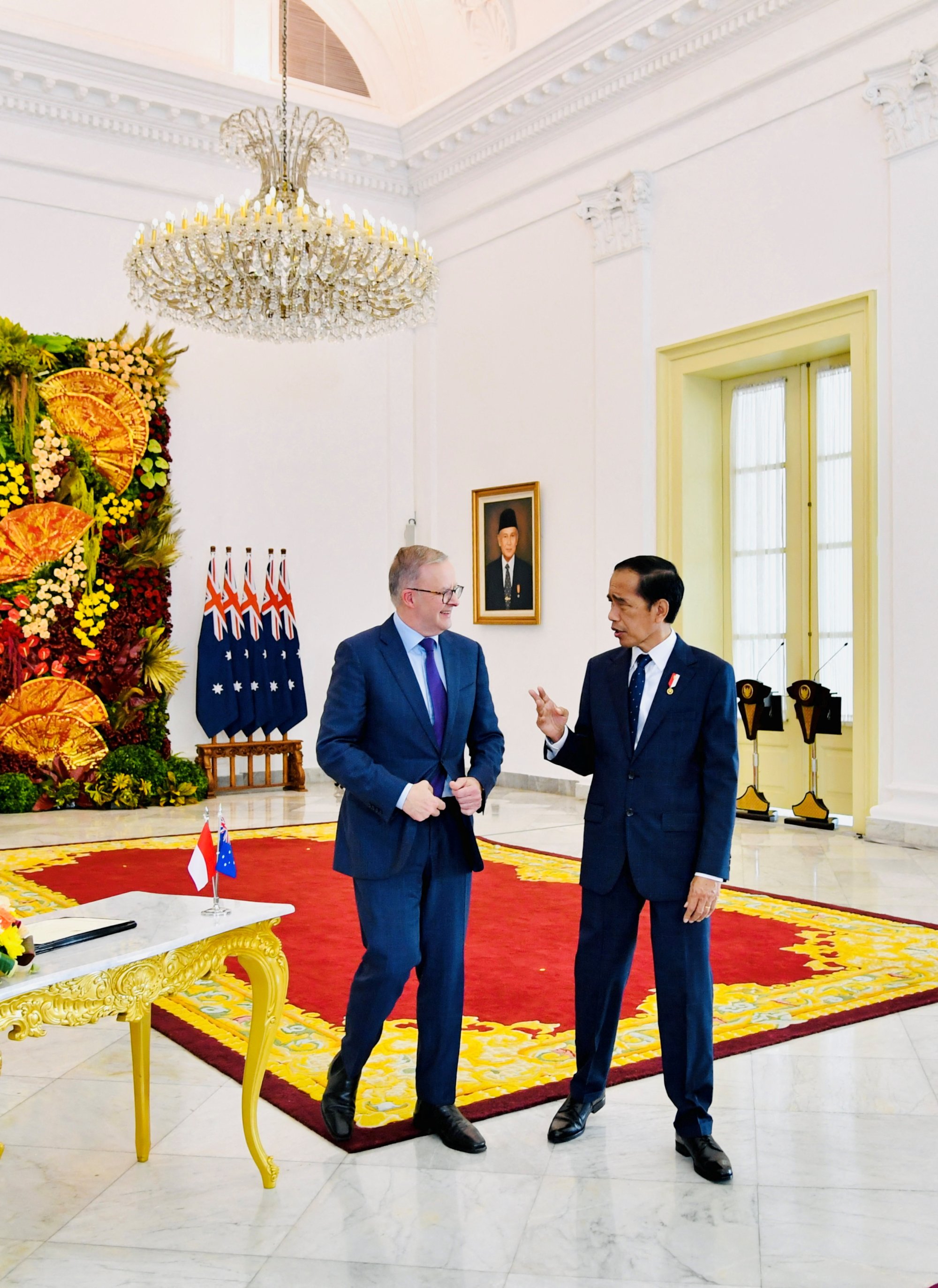
He said the organisation was “ready and eager” to help the new government rebuild “the somewhat dilapidated educational pipeline for producing Indonesia-literate Australian graduates at the volume and quality required if we are to realise a step-change intensification of Australia’s relations with Indonesia”.
“Nothing new”
President Jokowi said he had invited Albanese to the G20 Summit which Indonesia will host in Bali in November, so they can continue to work together on key economic issues in the region.
Albanese confirmed he had accepted the invitation.
Some, however, were underwhelmed by Albanese’s speech, with Yohanes Sulaiman, a lecturer in international relations at Universitas Jenderal Achmad Yani in Bandung, telling This Week In Asia it “was nothing new”.
“Albanese is going to attend the G20, they want to work together, strengthening economic relations, dealing with regional problems. It was pretty boilerplate (predictable) for me,” he said.
After meeting at Bogor Palace in Bogor, 60km (37 miles) south of Jakarta, the two leaders planted a tree together and rode bamboo bicycles designed by award-winning sustainable product designer Singgih Susilo Kartono around the grounds.
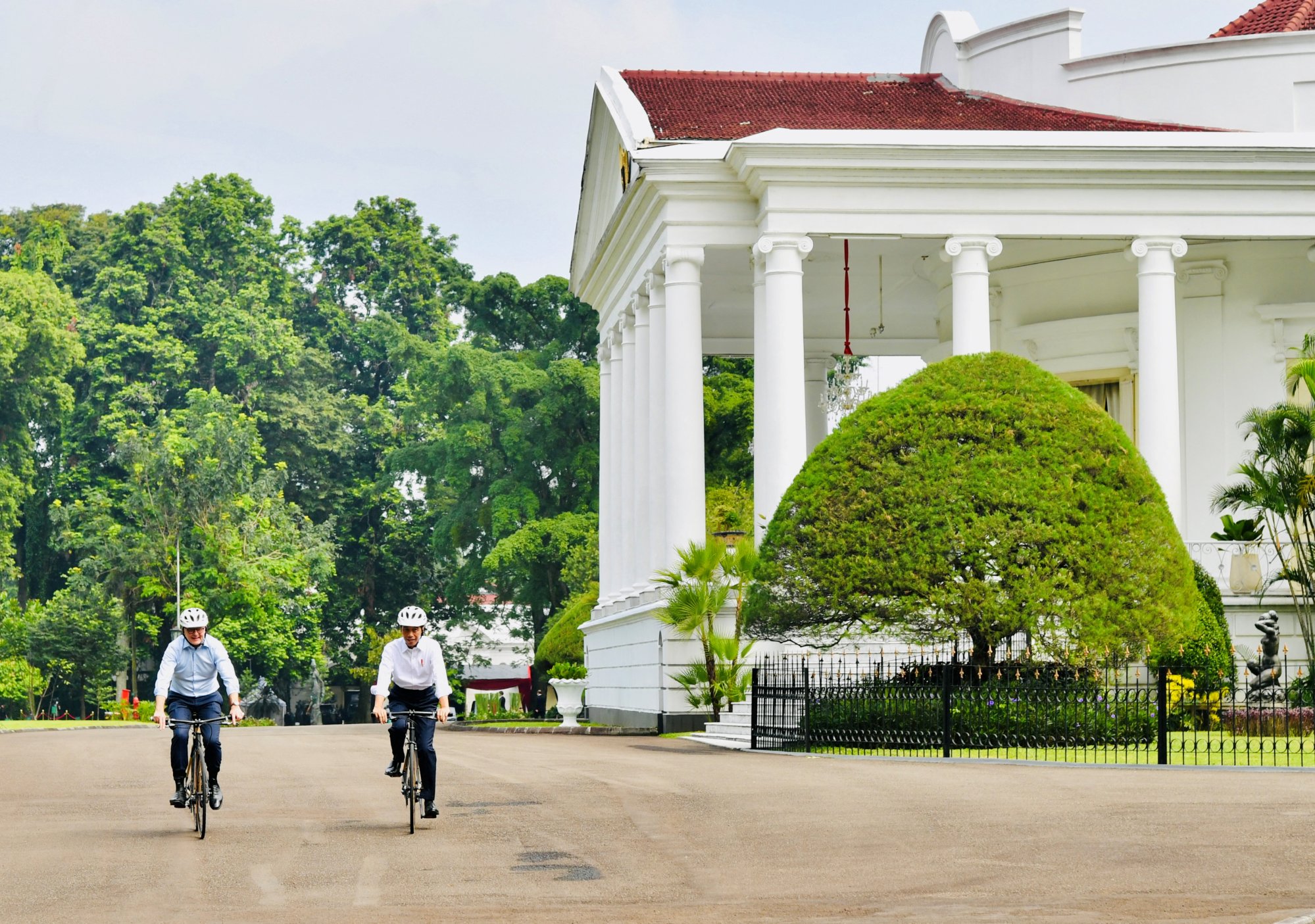
“We shared our similar stories of humble beginnings and that was the significance of the bike ride which was deeply touching to me,” Albanese told a press conference later in the afternoon.
Albanese travelled to Indonesia, Australia’s largest neighbour, with Foreign Minister Penny Wong, Trade and Tourism Minister Don Farrell, Industry and Science Minister Ed Husic and Luke Gosling, the Labor MP for Darwin and Palmerston.
The delegation also included senior executives from Fortescue, BlueScope, Sun Cable, Telstra, Thales Australia and Wesfarmers, who will represent Australian business interests at a dinner on Monday night.
Australia’s Albanese reaches out to China over fighter jet encounter
Albanese had been expected to address security in the region, particularly with regard to China’s role and its increasingly aggressive stance in the South China Sea, but this was notably lacking from his address at Bogor Palace, leading to speculation that this aspect of Indonesia-Australia relations will be discussed behind closed doors.
Sulaiman noted that Albanese only obliquely referenced the issue in his speech by saying that Australia supported “Asean’s (Association of Southeast Asian Nations) vision of the Indo-Pacific”.
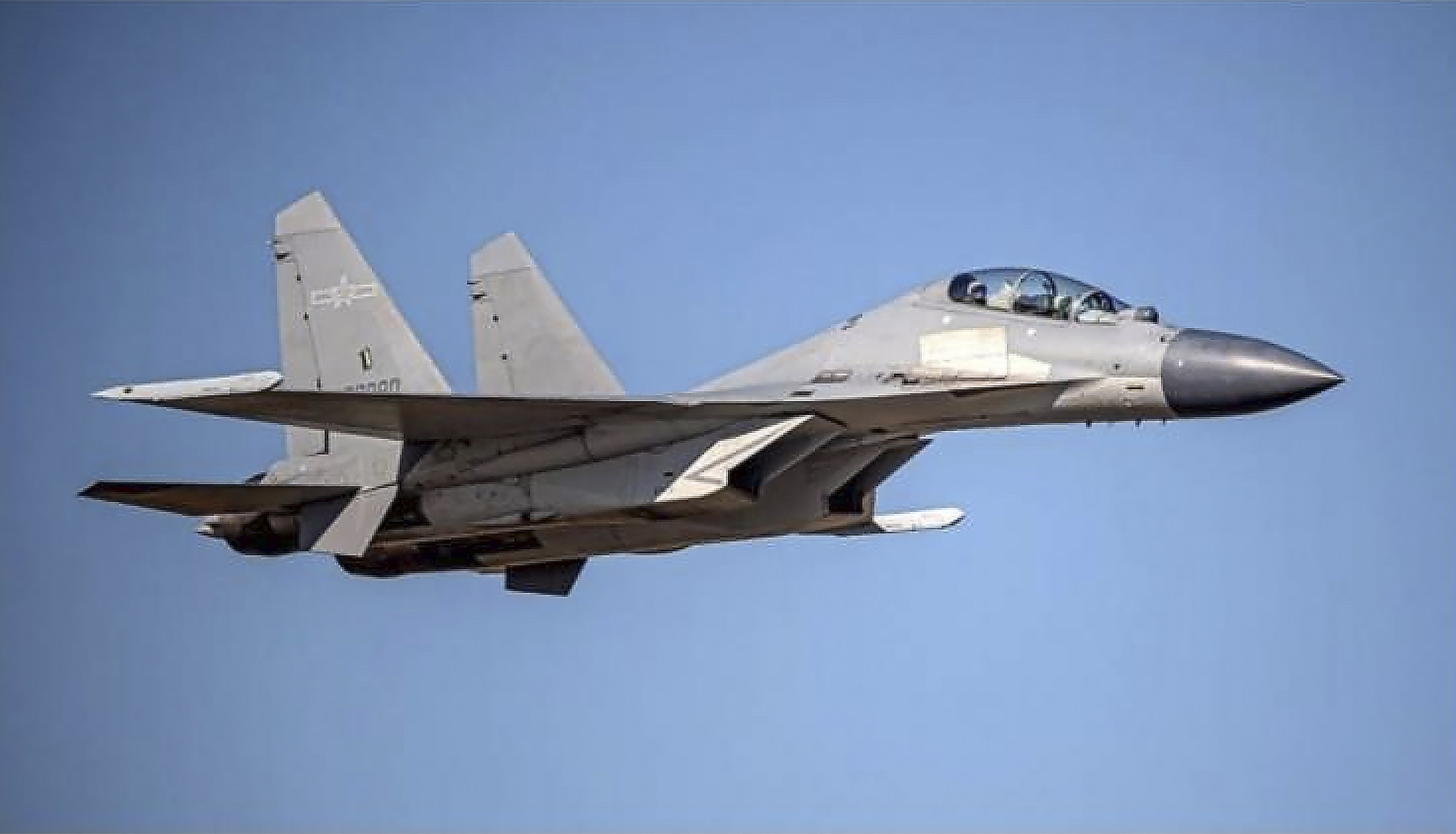
Ahead of the prime minister’s departure for Indonesia on Sunday came the news that Australia had complained to China after a Chinese aircraft flew close to an Australian maritime surveillance plane in international airspace in the South China Sea on 26 May and “released flares”, according to the Australian Minister for Defence, Richard Marles.
When asked about the incident at the press conference in Indonesia, which President Jokowi did not attend, Alabanese called it “an act of aggression and a dangerous act”.


